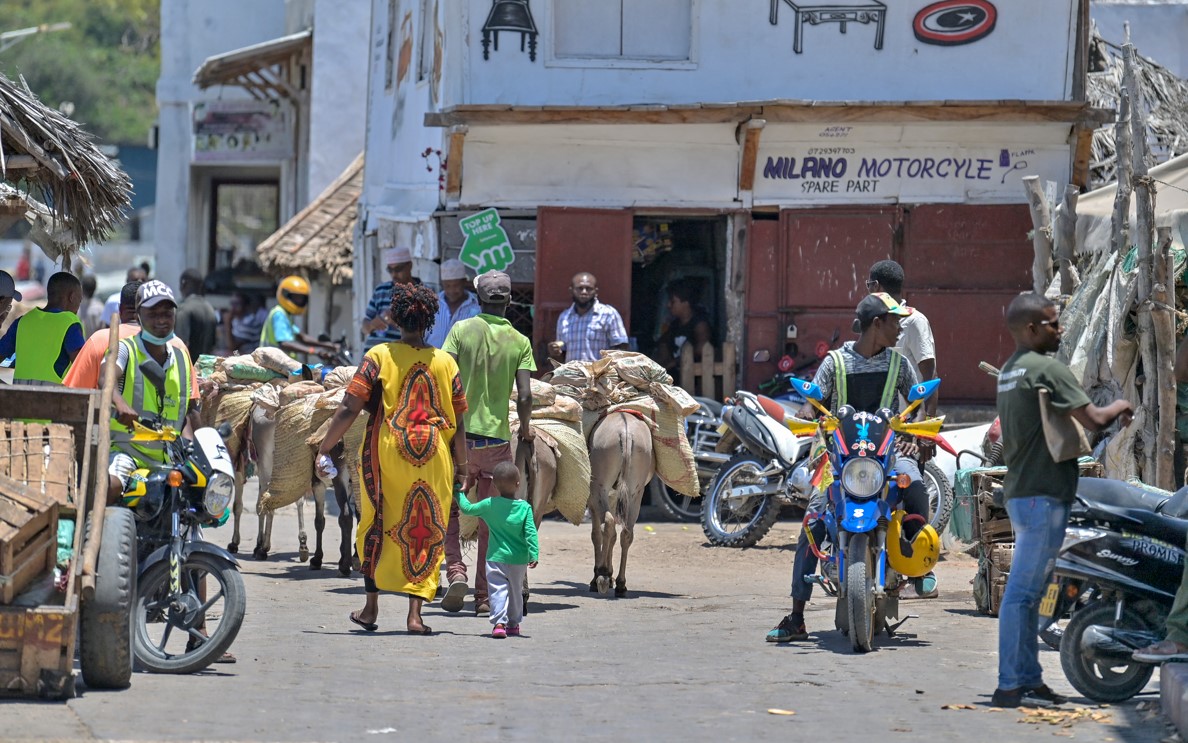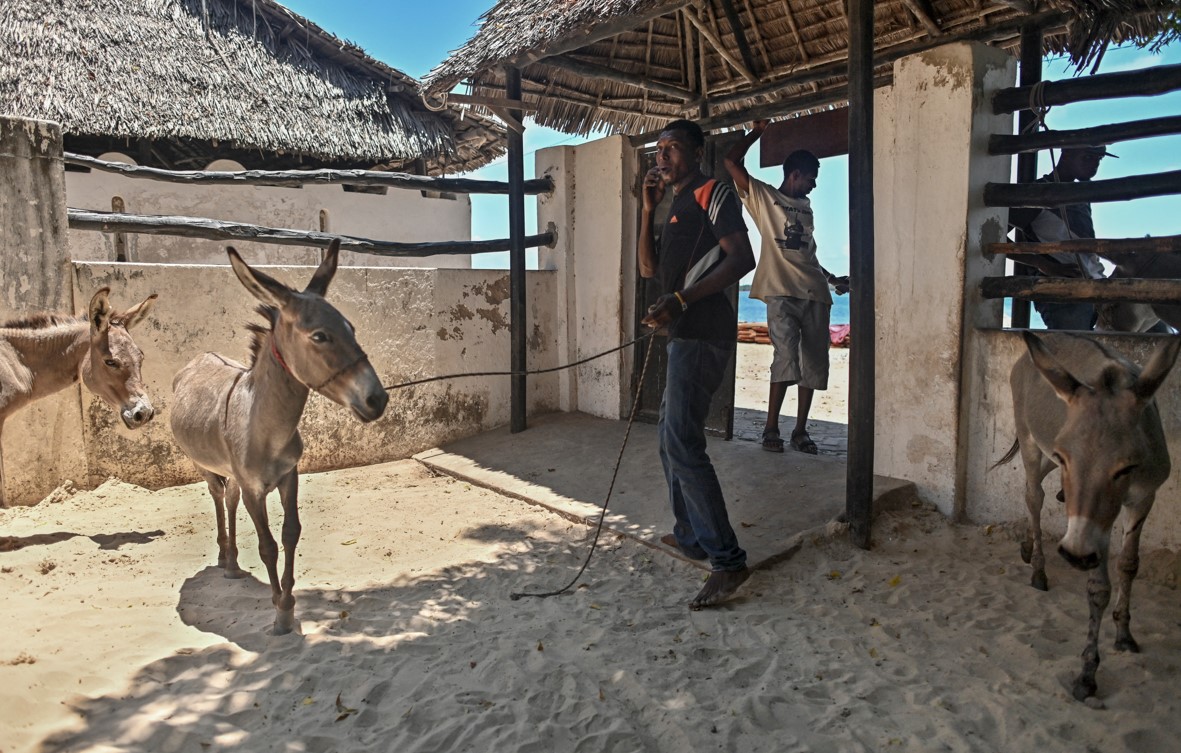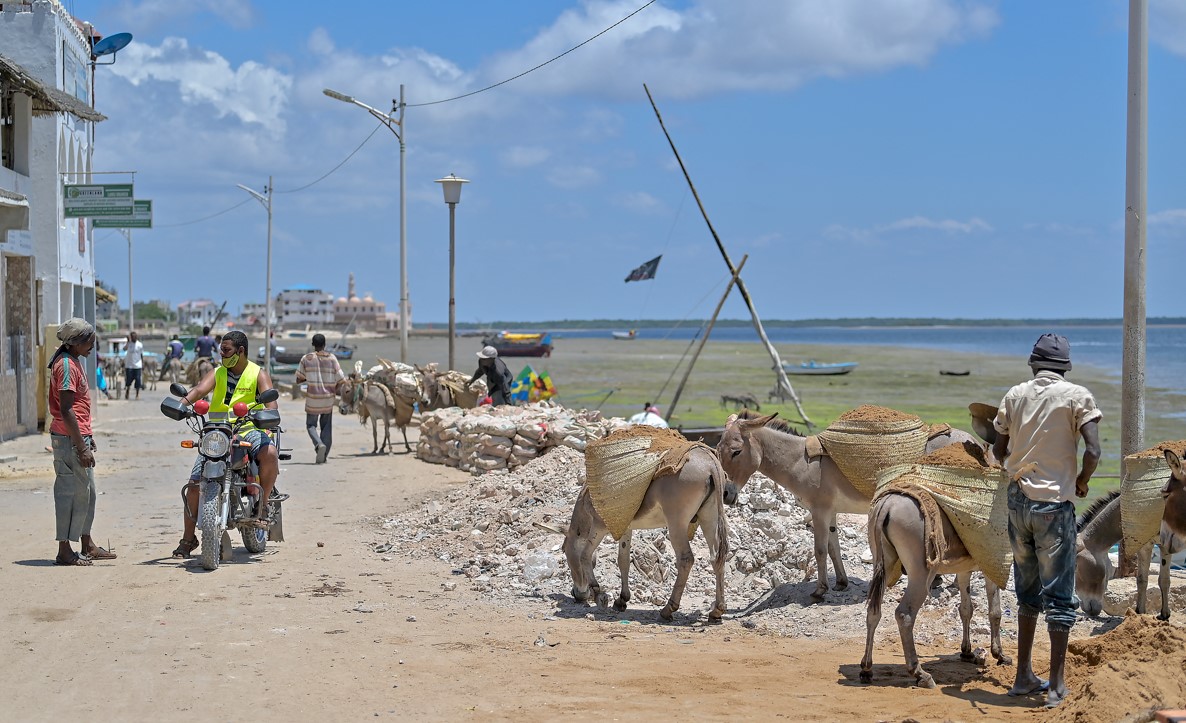Lamu youths turn to lucrative donkey transport business to bridge job gap

The business can generate between Sh500 and Sh2,000 daily as the demand rises.
Despite its historical roots, Lamu County in Kenya has clung to its traditional transportation methods as locals rely on donkeys for daily commutes in certain areas.
Purchasing a donkey in Lamu is expensive, with prices depending on the breed, colour, and intended tasks.
More To Read
- Lamu County turns to solar as widespread blackouts disrupt daily life
- Lamu County, Jubaland vow to strengthen cross-border ties in trade, health and security
- Lamu fishermen laud establishement of new cold storage facility in Kiwayu
- 20 arrested in Malindi crackdown on criminal gangs and drug networks
- New disaster clubs in Lamu Schools aim to strengthen emergency skills and civic engagement
- Lamu parents urged to support boy child amid rising drug addiction linked to neglect
Unlike other towns where vehicles dominate transportation, donkeys and carts remain the preferred mode for residents in Lamu.
Given Lamu Old Town's status as a tourist hotspot, entrepreneurs like Feisal Shee have seized the opportunity, capitalising on the demand for donkey transport.
Unable to find a white-collar job, Lamu youths have turned to the donkey transportation sector, where they can earn up to Sh5,000 daily.
Feisal, who ventured into this business five years ago due to a lack of employment, initially started with three donkeys he inherited from his father.
Reflecting on his journey, Feisal disclosed that each donkey could generate between Sh500 and Sh2,000 daily.
 A man brings his donkey to the Lamu Donkey Sanctuary where the more than 3,000 donkeys resident on the island, bred for decades to provide transportation for people and goods in the town's narrow alleyways. (Photo: AFP)
A man brings his donkey to the Lamu Donkey Sanctuary where the more than 3,000 donkeys resident on the island, bred for decades to provide transportation for people and goods in the town's narrow alleyways. (Photo: AFP)
Acknowledging its potential, he increased the number of donkeys in his fleet to 10 and used them to carry goods across his base, Pamba Roho.
Lucrative earnings
Feisal’s entrepreneurial spirit has proven successful, as his 10-strong donkey team now yields daily earnings ranging from Sh2,500 to Sh8,000.
His reputation as a sought-after haulier in the region has attracted numerous clients, with each trip, whether carrying building blocks or bags of cement, as he charges a minimum fee of Sh500.
“I studied until high school and after that, I did not have the funds to continue with my education. I went for two years looking for a job, but it was not meant to be. That is when I told my father I needed to venture into the donkey transportation business,” Feisal says.
He has now employed five youths who are helping him run the business.
“I thank God because it is through this business that educate my children and have something to eat,” says Feisal.
Shaibu Abdalla targets cargo transportation most of the time.
“In Lamu, it is rare to use any vehicles; we use boats, donkeys or carts. I earn up to Sh5,000 daily depending on the number of clients who need cargo transportation services,” Shaibu says.
 A man packs sand into reed-baskets saddled on his donkeys in Lamu town. (Photo: AFP)
A man packs sand into reed-baskets saddled on his donkeys in Lamu town. (Photo: AFP)
From fresh produce to construction materials, the donkeys carry the burdens of the town, turning the cobbled streets into bustling arteries of commerce.
Faced with the harsh reality of a limited job market, these young individuals turned their gaze towards a humble yet lucrative venture – donkey transportation.
“Donkey transportation business not only filled the economic void left by elusive white-collar jobs but also brought a sense of pride to the community,” says Omar Faiz, a Lamu elder.
They observe that they make more money during the tourist season since both domestic and foreign tourists find it entertaining to consider riding a donkey.
“We also offer hiring services, where residents come to hire the donkeys for the day. I usually rent one for Sh5,000 per day,” says Omar.
He says selling them is even more profitable.
“You cannot buy a donkey for less than Sh60,000; others are sold for up to Sh100,000,” Omar says.
Top Stories Today













































